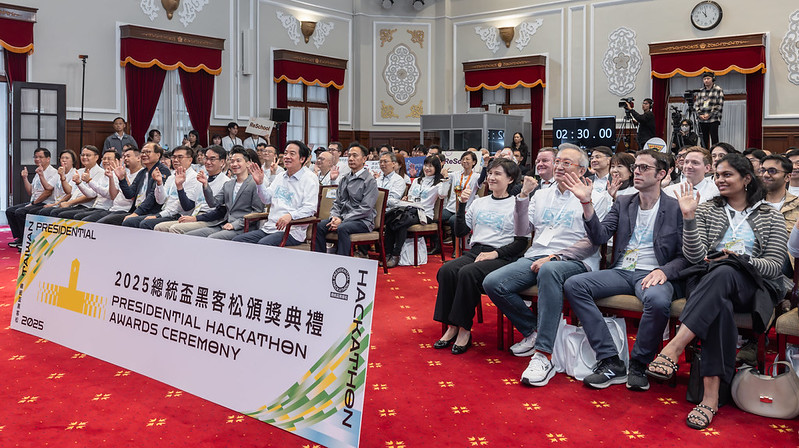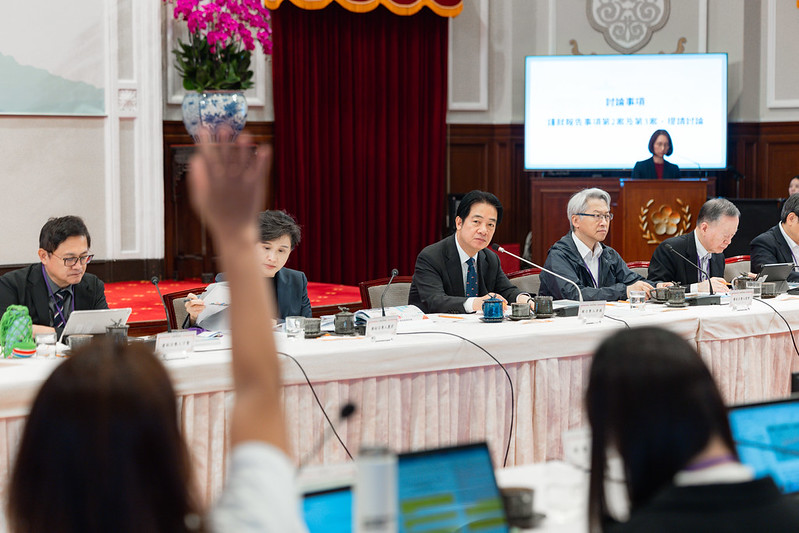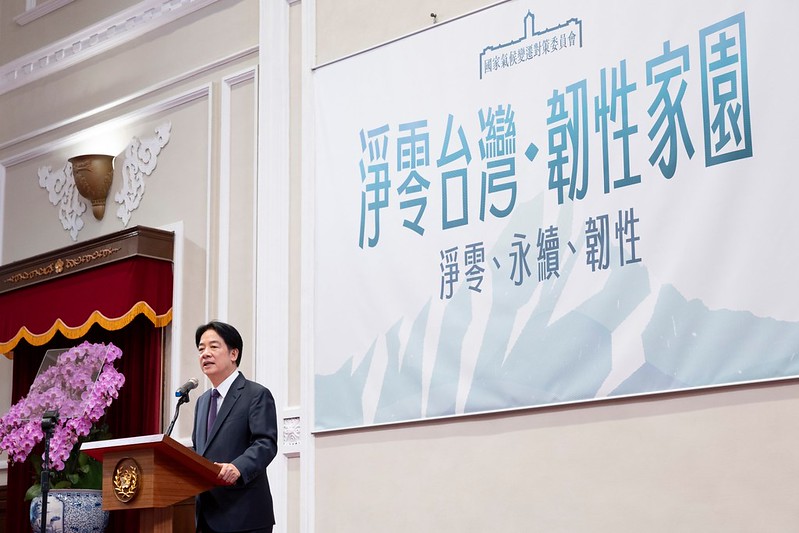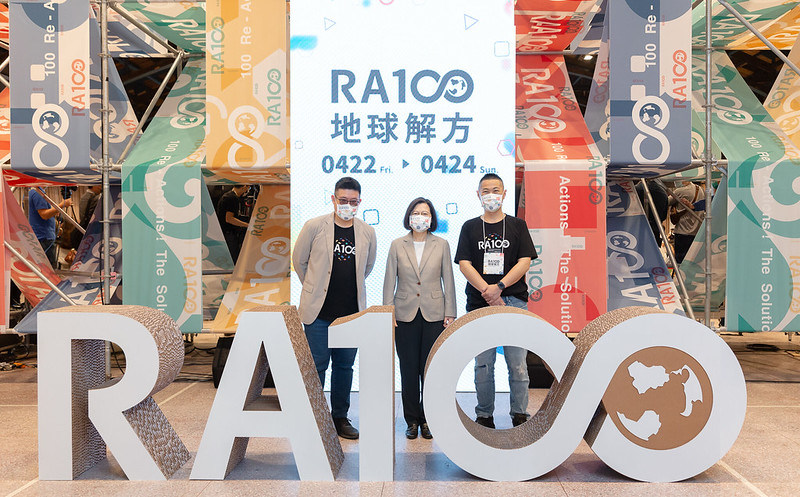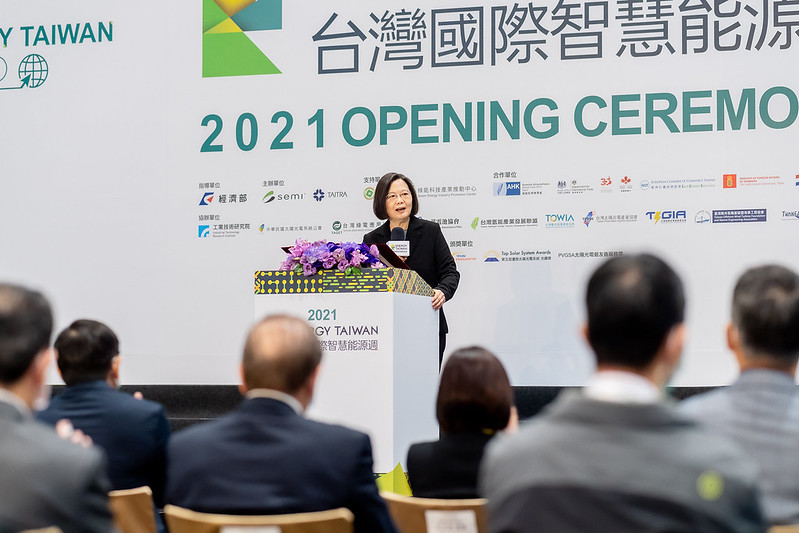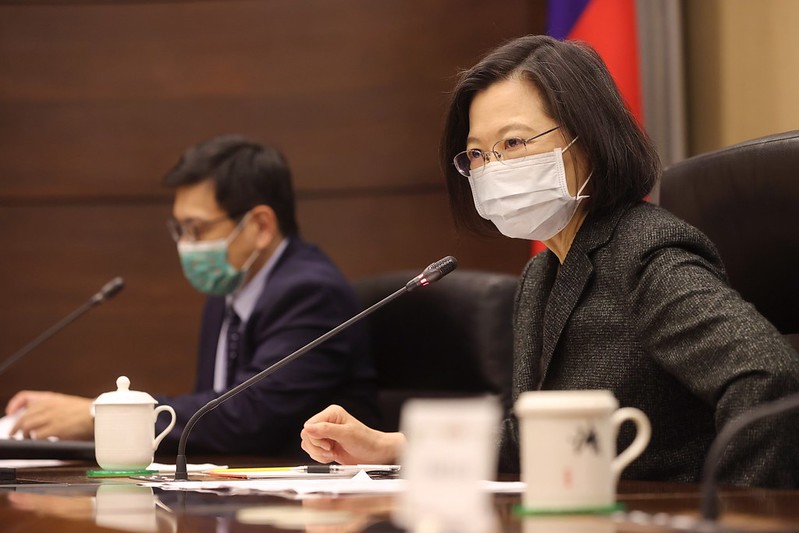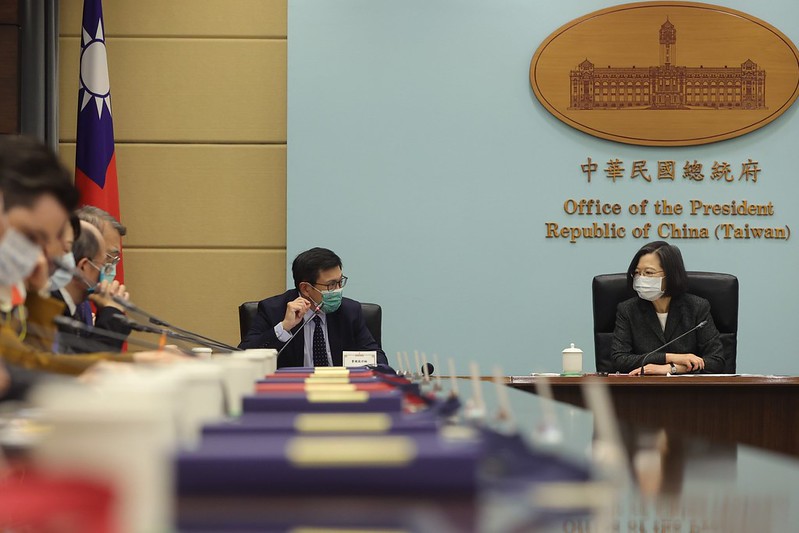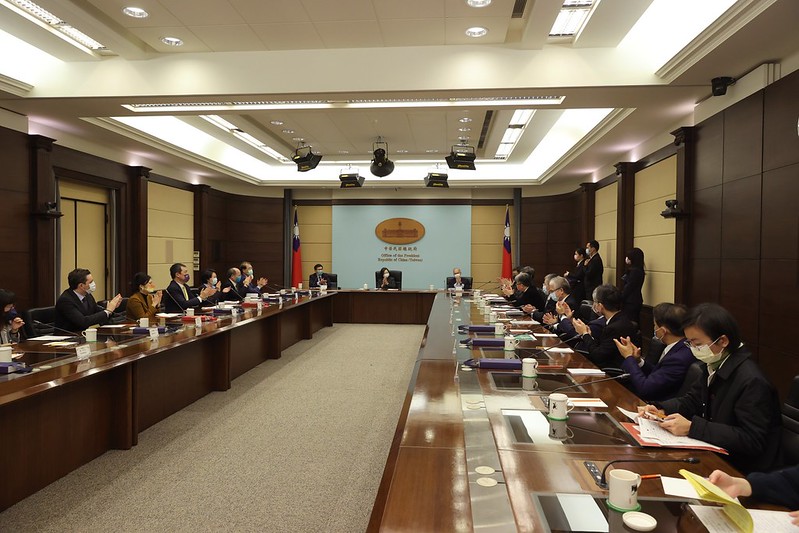News & activities
 News releases
News releases
On the morning of December 9, President Tsai Ing-wen met with a senior delegation of representatives from the industry association SEMI and the renewable energy sector. During the meeting, President Tsai stated that the government will continue working to achieve its goal of 20 gigawatts of installed solar capacity by 2025, and will release additional offshore wind power capacity for development each year in order to build a more flexible and resilient power grid. The president also asked the business community for its support in these government efforts, so that we can lay a solid foundation for Taiwan's future global competitiveness.
A translation of President Tsai's remarks follows:
It was just yesterday that we met at the Energy Taiwan expo. And it is a pleasure to welcome you all to the Presidential Office today for a more in-depth exchange of views and to hear your valued opinions.
First of all, I want to thank SEMI for its longstanding focus on the development of Taiwan's semiconductor sector. Its annual SEMICON Taiwan exhibition is a major event for the global semiconductor industry, as well as an important platform for our homegrown firms to connect with their international counterparts. Let me take this opportunity to wish SEMI all success with the upcoming SEMICON Taiwan exhibition, which will be held at the end of the month.
This year, the value of Taiwan's semiconductor industry is expected to exceed NT$4 trillion, breaking previous records. One important task we have in maintaining our nation's global leadership in this sector is the development of green energy, so we can address the demand for green energy from semiconductor firms.
Since 2016, cooperation between our government and all of you, as industry leaders, has yielded notable progress in Taiwan's solar and wind power sectors. And last year, the Ministry of Economic Affairs established a platform for trading green energy, speeding up efforts to coordinate green energy demand and supply in the private sector.
Going forward, as we pursue our goal of 20 gigawatts of installed solar capacity by 2025, I will be closely following the MOEA's evaluation of additional areas for potential solar power project development. In addition, we have already announced details of the bidding process and localization requirements for the third phase of our offshore wind power development plan, as part of which 1.5 gigawatts of capacity will be up for bidding each year from 2026 to 2031.
Moreover, to facilitate the integration of renewable energy into Taiwan's power supply grid, Taipower has set a goal of installing more than 1,000 megawatts of energy storage capacity by 2025, through a combination of direct construction as well as private tenders. Our administration will continue to work to ensure the stability of our power grid by developing more flexible and resilient systems.
Energy transition is a key policy priority for our government, and we have a clear roadmap for how to overcome the challenges ahead of us and meet our goals. Your cooperation and support for our government's efforts are important to us. Together, we can help lay a firm foundation for Taiwan's future competitiveness.
Among the members of the visiting delegation were SEMI Global Chief Marketing Officer and SEMI Taiwan President Terry Tsao (曹世綸), SEMI PV Committee Chairman Andy Shen (沈維鈞), SEMI Wind Energy Committee Vice Chairman Julian Kuo (郭世榮), SEMI Energy Storage Committee Chairman Paul Ai (艾祖華); United Renewable Energy Co. (URE) Chairman Sam Hong (洪傳獻); TSEC Corp. Chairman Liao Kuo-jung (廖國榮); ASE Technology Holding Co. Corporate Administration Officer Dtuang Wang (汪渡村); Yuen Foong Yu Group Chairman Hui-Jean Liu (劉慧瑾); Copenhagen Infrastructure Wind Power Development Taiwan Co. Managing Director Marina Hsu (許乃文); Ørsted Asia Pacific President Matthias Bausenwein; Siemens Gamesa Offshore Asia-Pacific General Manager Niels Steenberg; AUO Optronics Corp. Vice President of Energy Business T.Y. Lin (林恬宇); and Enel X Taiwan Co. General Manager Chen Wei-ting (陳威廷).
